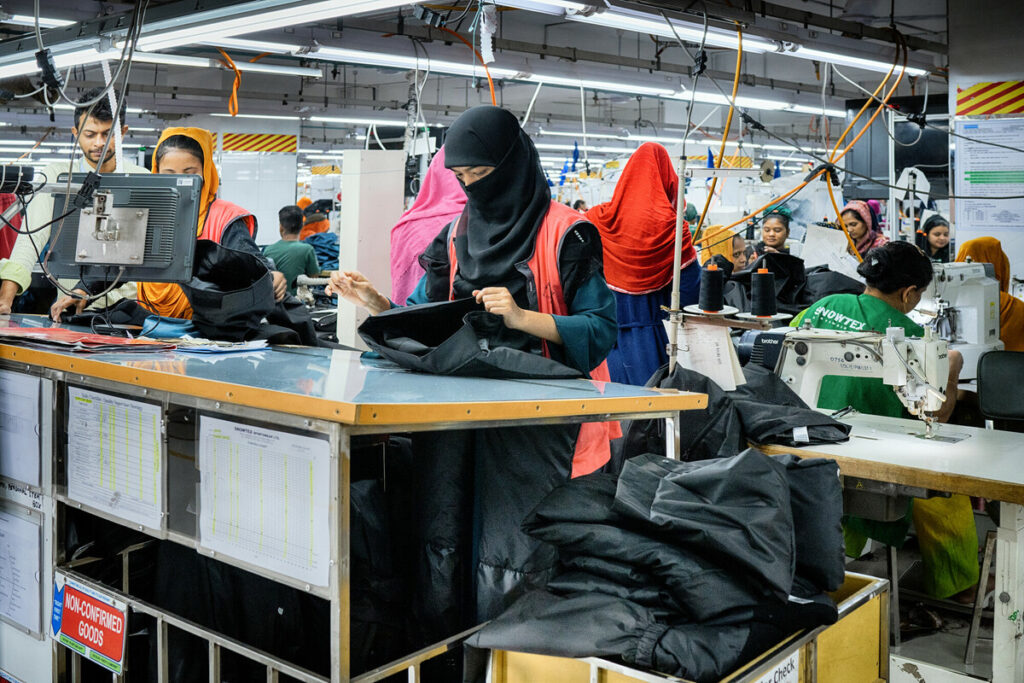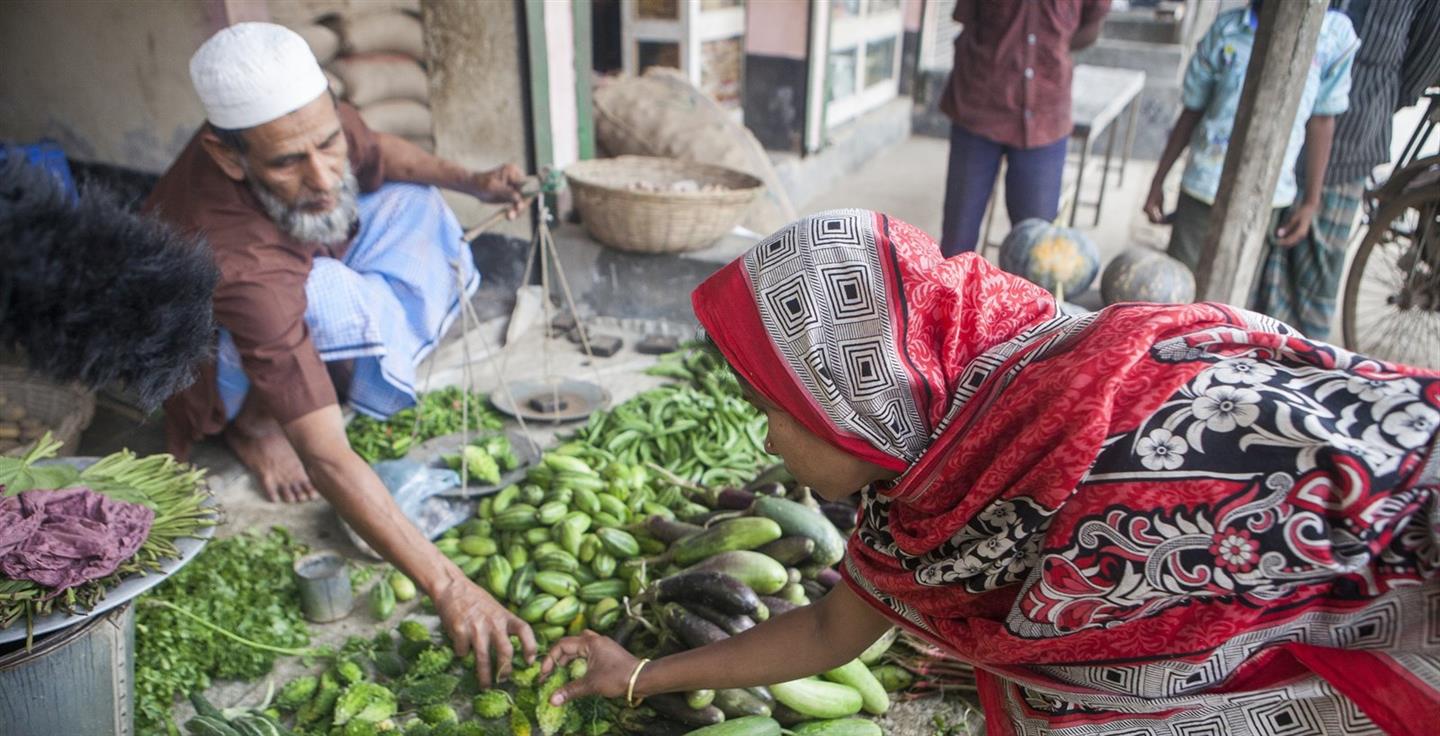Fair Tax Monitor
Oxfam and Tax Justice Network-Africa (TJNA) have joined forces to #maketaxfair. Our view is that a society can only thrive if no one is left behind. Fair taxation and public spending form the foundation of a fair society. For a strong social contract between citizens and the state, the state should:
- collect sufficient revenues in a progressive way, ensuring everyone pays their fair share.
- use revenues to fund essential services.
- collect and spend revenues in a transparent and accountable way
- ensure citizens can participate in the decision-making process around revenue collection and spending in an inclusive way.
To support civil society organizations gather quality evidence, dialogue with the relevant stakeholders, and enhance public participation, we – TJNA, Oxfam and partners – have developed the FTM tools.
What is the Fair Tax Monitor?
The Fair Tax Monitor (FTM) is a research, advocacy and capacity strengthening tool. FTM reports provide evidence on national tax systems by using the FTM methodology. The evidence stimulates debate and enables civil society to push for policy changes.
How does it work?
FTM Methodology
Throughout the years, Oxfam, TJNA, and partners have cooperatively developed the FTM methodology tools. The FTM methodology offers a comprehensive list of questions designed to assess fair taxation in any country. Each question and topic come with detailed explanations and additional resources that provide researchers with a thorough understanding of the relevant subjects. Co-creating and improving the methodology is a continuous learning journey for all involved. Learn more!
FTM Projects
The FTM funds, supports, and facilitates research and advocacy for fair taxation. FTM projects enhance partner organizations’ knowledge, capability and confidence to discuss – or confront! – stakeholders on fair taxation. See our projects!
“Taxation can be a veritable tool to fight against poverty and inequality. The FTM boosted my confidence to engage with stakeholders on a broad spectrum of fiscal topics.” – FTM partner in Nigeria.


“Gender analysis in the tax system was completely new to me and greatly improved my discourse on tax justice and inequality.” – FTM Mozambique partner.
Our Impact
CAPACITY BUILDING
20 countries
Co-creation in mutual learning of the FTM methodology.
Support of partner organizations in 20 countries.
Increased capability and confidence of activists to engage dialogue on fair taxation with policy makers.
RESEARCH
Comprehensive freely accessible methodology toolkit for researching fair taxation.
17 published reports in the past 10 years.
Special look-out on Taxing the Rich, Gender & Taxes, and Extractive Industries.
ADVOCACY
Change policies. Change the world.
Greater engagement between policy makers and civil society.
Higher awareness of the gender dimension of tax policies.
Strengthened political will and improved policies to #maketaxfair.
Where has the Fair Tax Monitor been used?
The FTM methodology has been used, or is currently in use, in twenty countries in Asia, Africa and South America: Bangladesh, Brazil, Cambodia, Cameroon, Egypt, Ghana, Kenya, Mali, Morocco, Mozambique, Nigeria, Occupied Palestinian Territory, Pakistan, Peru, Senegal, Sierra Leone, Uganda, Tunisia, Vietnam, and Zambia.
You can find the FTM Country Reports for each of the countries where the FTM has been used on the FTM Reports page.
History of the Fair Tax Monitor
The development of the FTM was an organic process which started around 2013-2014 within the Capacity for Research and Advocacy for Fair Taxation (CRAFT) project. Initial thinking focused on the idea of a Fair Tax Index which was further developed and piloted in 2015-2016 in 4 countries: Bangladesh, Pakistan, Senegal and Uganda. The result of the successful pilot led to the creation of the Fair Tax Monitor.
Since the pilot phase and drawing on feedback from numerous consultations, various changes have been made to improve the research framework and the methodology. Key improvements over time have been the expansion of the tax and gender analysis and the deepening of the public spending chapter. In addition, we have also expanded our toolbox by creating templates and guidelines aimed to support those working with the framework.
Moreover, the FTM framework has been expanded with optional in-depth research and advocacy options for thematically focusing the FTM work on Taxing the Rich, Tax & Gender, and Extractives Industries.
Keeping pace with the changes that occur in the field of taxation, there has also been a number of revisions to the FTM; the first set of revisions led to the 2018 CRF and Scoring Methodology, which was used for reports written in 2018 and the first half of 2019.
The second set of revisions were carried out in mid 2019 and were used for reports written from mid 2019 until now.
In 2022, we built upon our methodology to pilot additional Tax and Gender analysis in Uganda and Zambia. At the same time, we have piloted an additional Tax and Extractives analysis in Mozambique.
Finally, since the beginning of 2019, the FTM team has also been working with Action Aid (AA), to build on each other’s expertise and to expand the number of FTM countries.
Support for the Fair Tax Monitor
Over the years the development and implementation of the FTM has been funded by:







